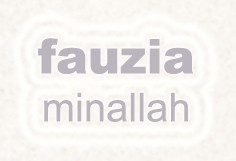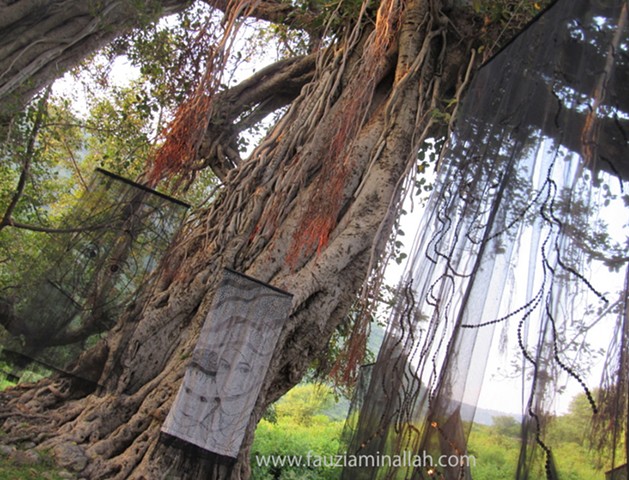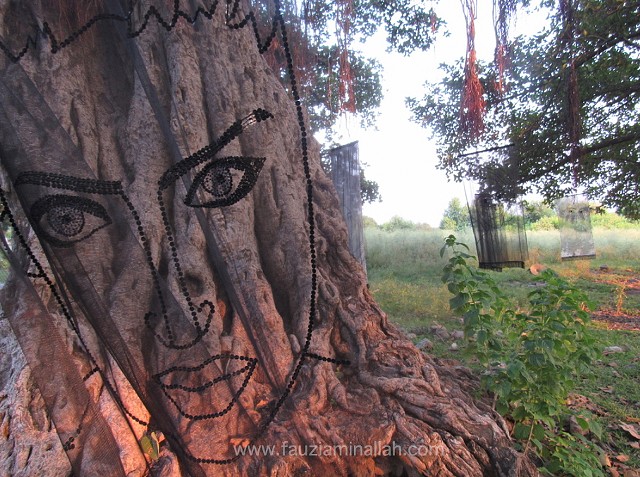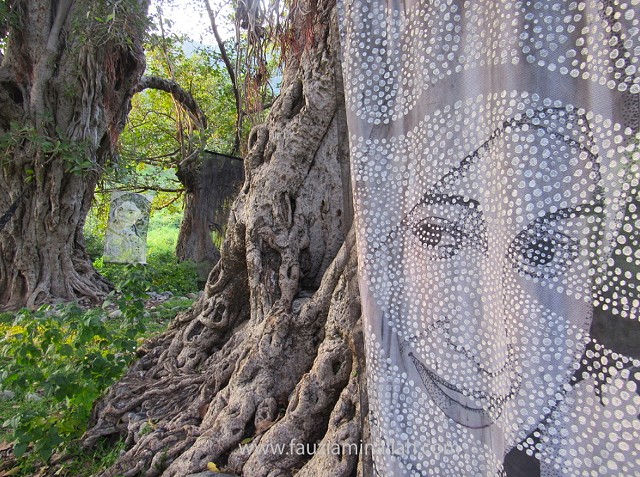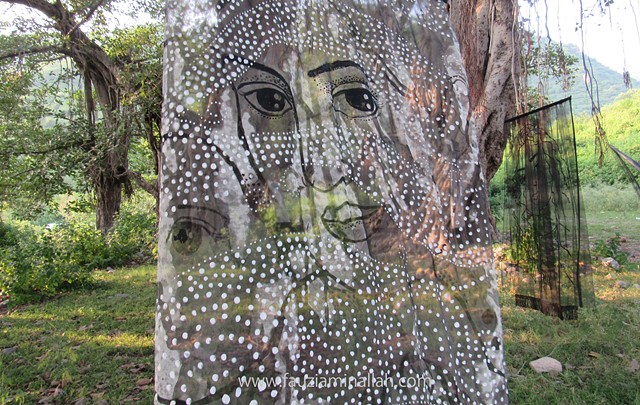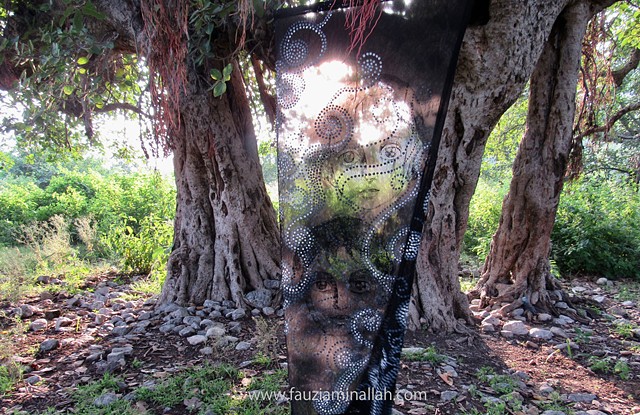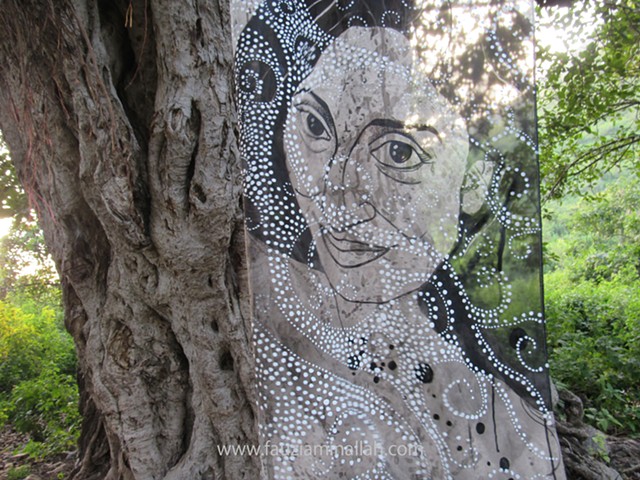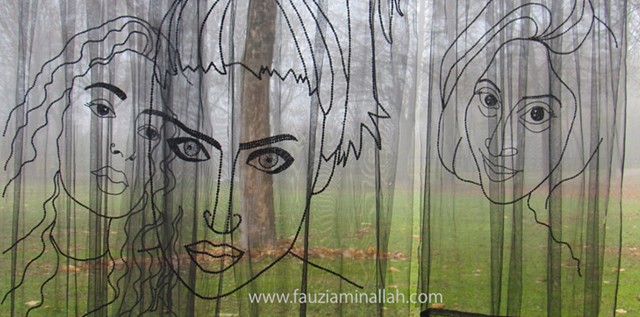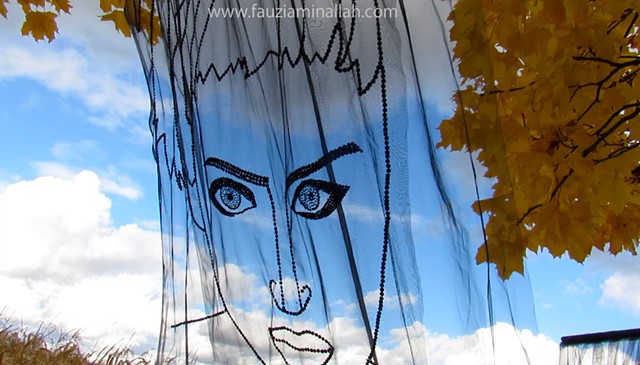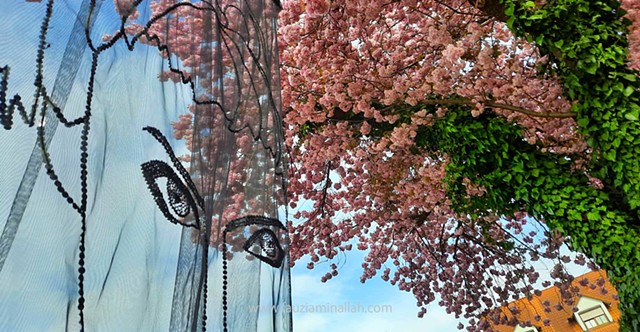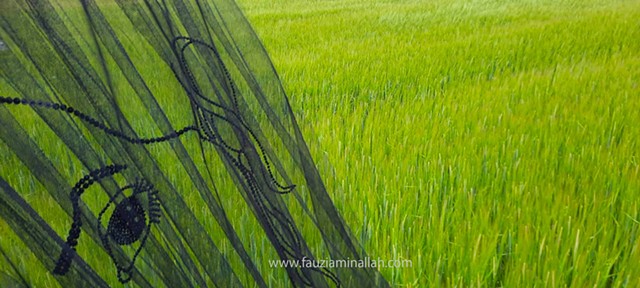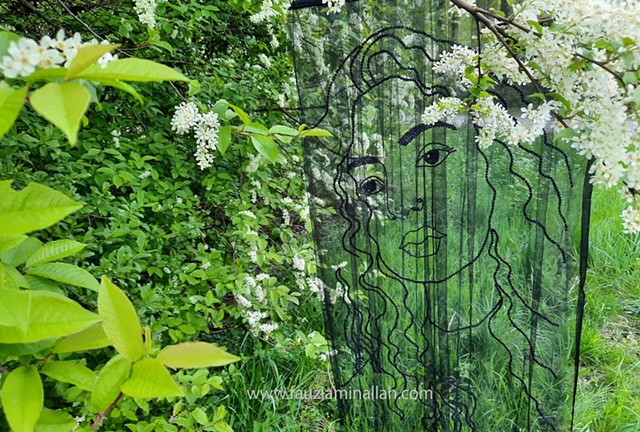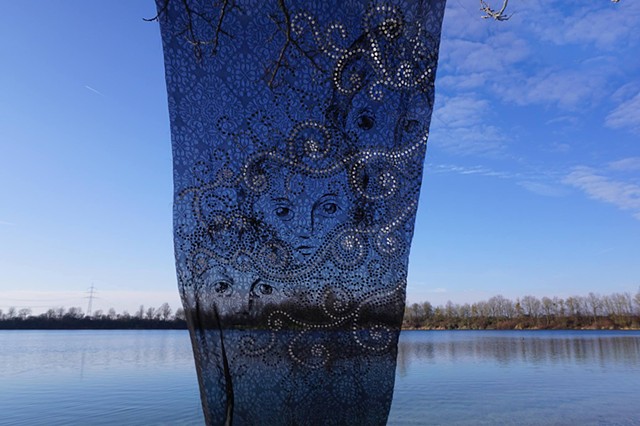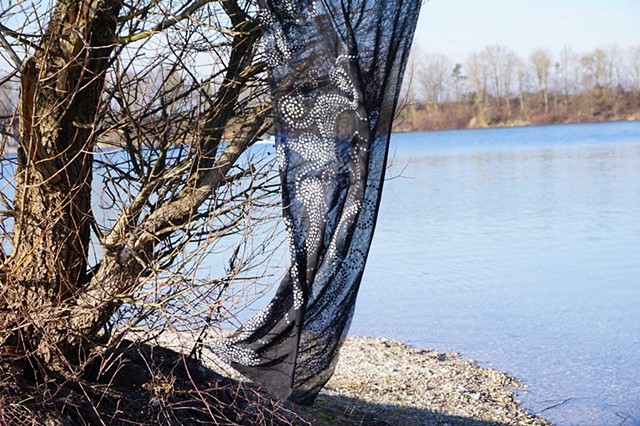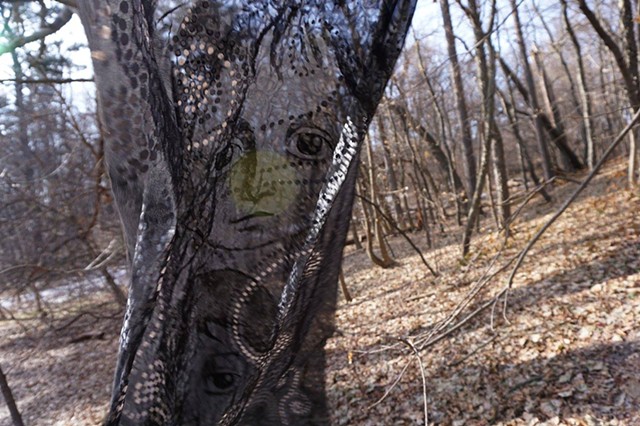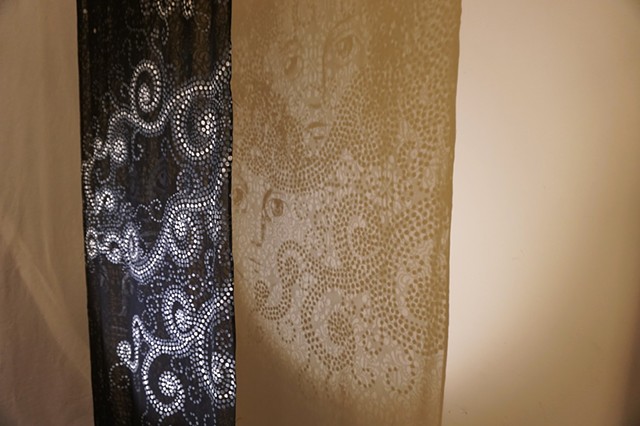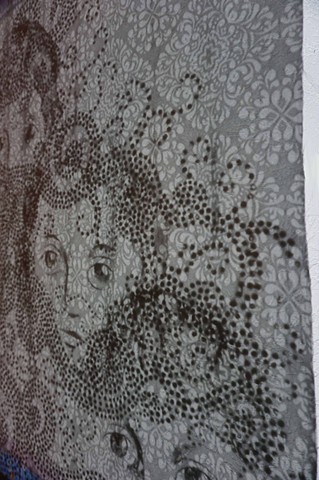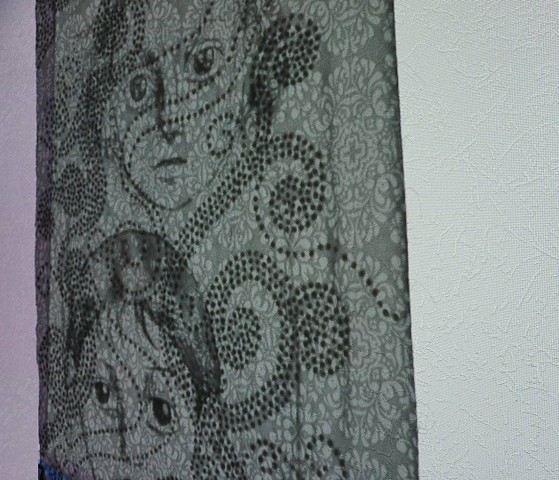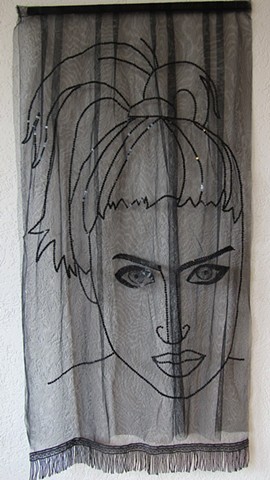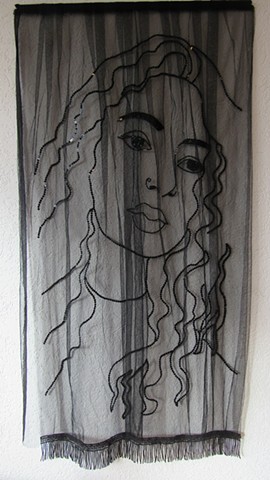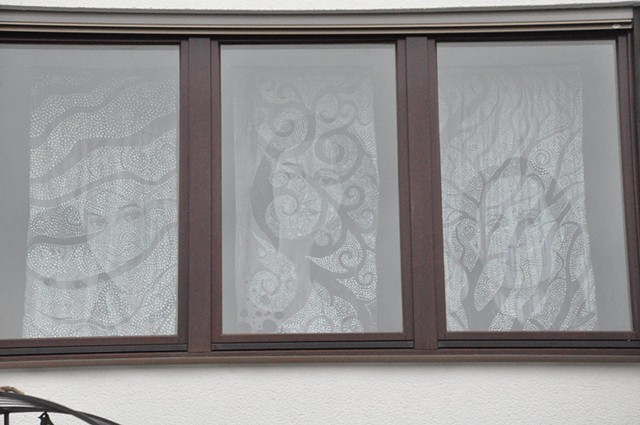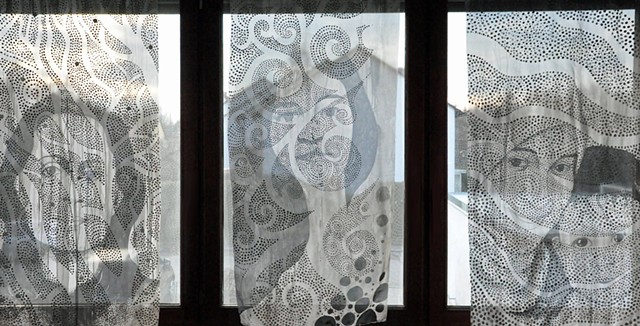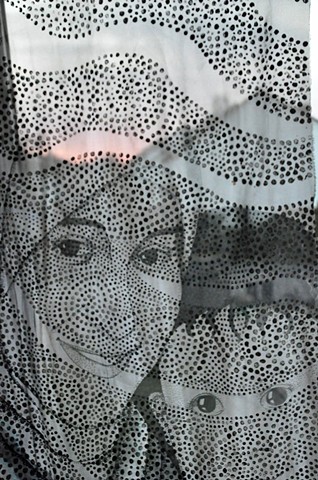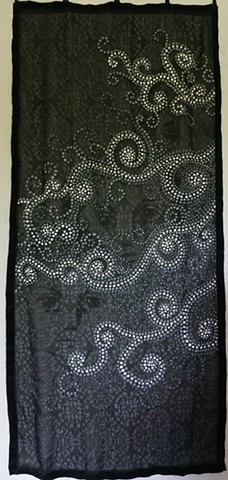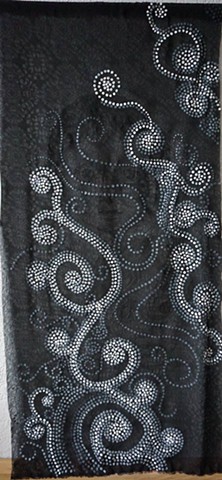Free At Last!
"Minallah’s creative impulses are informed by a desire to change and preserve, her creativity trusts intuition to create experience and memory. In her recent show, the visual and the sound were in sync with the vibrations of a 100-year-old miracle of nature, the Banyan tree. It displayed her current work dedicated to women who have suffered violence, created on fabric, translucent and almost disappearing in the sunlight. It was as fragile as the lives of the victims; the most recent one being Noor Mukkadam. It came together with a recital of Kishwar Nahid’s fierce feminist poetry and they both, the artist and poet, transformed the space by anchoring it to something deeper, something unexperienced, in the exhibition rituals that take place inside a ‘white cube’". Niilofur Farukh, Art critic.
For this work I use the mosquito nets I bought in Germany. Taking photos of this work in different countries and places I travel are very important to me. I love how these panels merge into the environment and become a part of 'mother nature'.
I was in Germany because I wanted my son to finish his school in a peaceful environment. In 2015, while I was installing mosquito nets on the windows to keep annoying insects away, there were countries keeping humans away from entering. I could´nt help but think about the thousands of people risking their lives to cross the Mediterranean sea to get their children to safer places. To some these humans are like mosquitoes , either they are kept away from other countires or crushed in their own.
I painted most of these panels while I was waiting for the approval of my visa to the country where both my sons are studying. During this time, I witnessed the refugee crisis in Germany , it was painful to see these broken hapless people taking risks to come to Europe especially Germany. The Mediterranean has sucked so many lives, I wondered how many of the nearly 30,000 people whose bodies were washed up on the shore were women? How many were children? But those who do reach Germany are they able to find peace here? How many more young girls will be killed here by their own fathers or brothers for being too Westernised? Or how many women will face the hatred of those who dislike the color of their skin?
This consists of embroidery on nets and painted fabric. I play with light and shadows in this work. When it hangs on the wall you can only see a black fabric with grey and white dots. When you hold it against the light only then you can see the images of children. in the shadow. This is meant to hang on the window only then one can see the images of children during the day as light filters through it. So we do need light to see the pain of little hearts broken due to unimaginable cruelty of wars or poverty?
